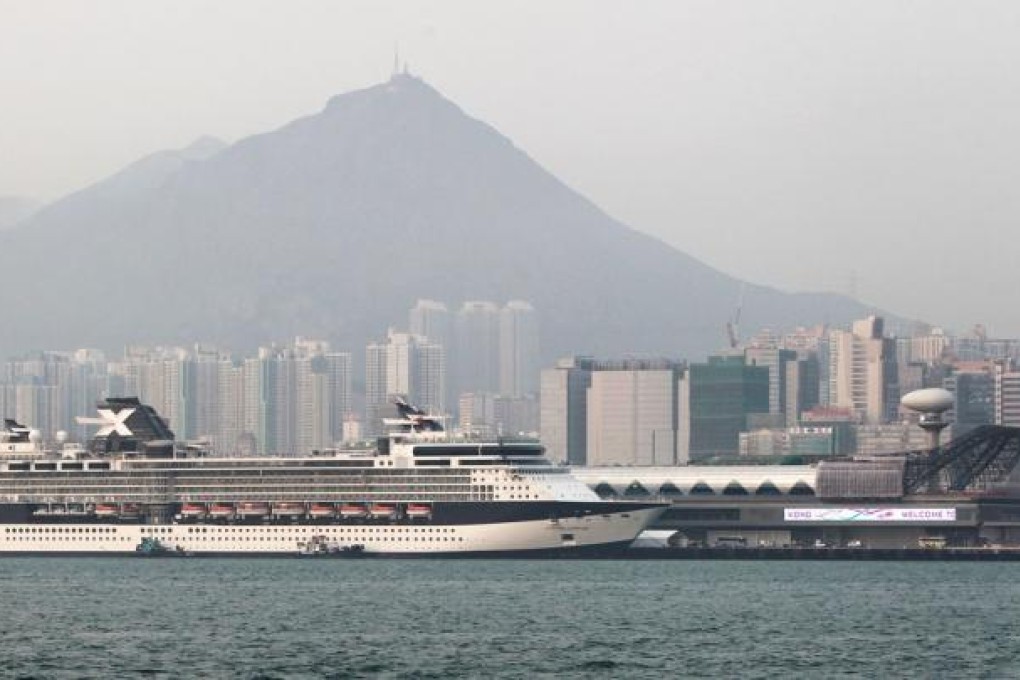Cruise ships must use cleaner fuel at Kai Tak
Simon Ng says a simple switch to cleaner fuel when cruise ships call at Kai Tak would greatly benefit us. If only the industry would agree

Last Saturday, the 294-metre, 91,000-gross-tonne Celebrity Millennium became the first cruise ship to berth at the new Kai Tak terminal in a rehearsal, three months prior to the grand opening of the facilities.
Another 16 calls are scheduled before the end of April next year, including some of the world's most popular cruise ships. Tens of thousands of passengers will grace the state-of-the-art terminal, as well as the city's many famous attractions and shopping and dining areas.
This is a milestone for Hong Kong as a regional cruise hub, potentially bringing considerable direct and indirect benefits to the economy.
Yet, because of the filthy, high-sulphur bunker fuel these gigantic cruise ships are known to be burning, at locations virtually at the heart of the city and close to Hong Kong's population centres and commercial districts, environmental groups have been vocal in recent months about cruise ship emissions and the adverse impact on public health. They have been asking the cruise ships to clean up, exactly what is happening in the United States and Europe under mandatory requirements. Hong Kong has been lenient in the past, but not any more.
Judging by their reaction, the cruise industry and the government agencies overseeing the Kai Tak Cruise Terminal were taken by surprise. Some argued that container vessels are the main culprit among ocean-going vessels when it comes to the emission of air pollutants, and wondered why environmental groups were pointing the finger at cruise ships. By saying this, they missed the point that, after container vessels, cruise ships are the most polluting, and the public now expect the business sector to take responsibility for the impact of their business.
Some others even claimed they were not in the business of delivering clean air or addressing environmental issues. Surprise, surprise!